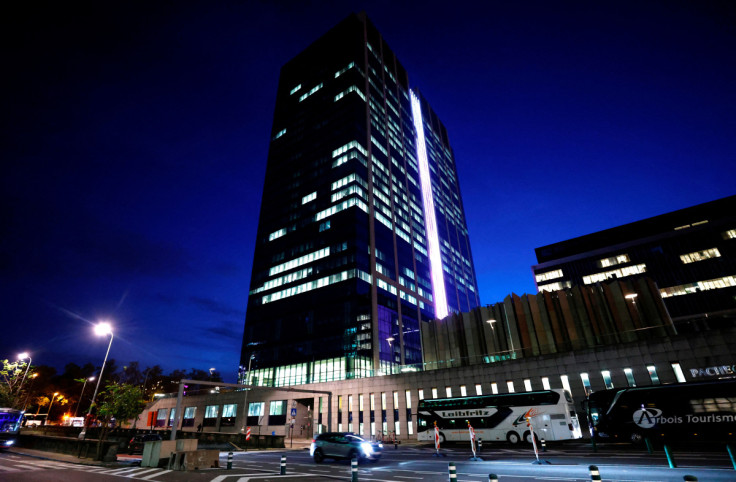
The two years that followed the peak of the COVID-19 pandemic (2020 and 2021) were some of the best in technology startup history. At a global level, startups raised $643 billion in 2021 compared to $335 billion in 2020, according to data from Crunchbase.
Latin America was no exception. In 2021, investment in Latin American startups grew 300% year-over-year, reaching $19.6 billion.
By 2023, however, the global VC space had cooled significantly, with Latin America witnessing one of the greatest contractions of startup investment in the world. Total investment into South and Central American startups reached $2.9 billion in 2023, an 84% drop from its 2021 peak.
"In the tech realm, basically, many investors are waiting," Michael Puscar, an entrepreneur and investor based in Colombia, told The Latin Times. "They are waiting to see what happens with interest rates in the federal banks, among other issues."
The tides could be shifting, however. This month, Bloomberg reported that venture capitalists in the region are sitting on billions of dollars in "dry powder" -- extra cash waiting to be deployed into startups in the region -- and they're becoming more "aggressive" in how they invest it.
Using data from Brazil-based market intelligence firm Distrito, Bloomberg reported that over $315 million was deployed into LatAm startups in January alone. Investors caution that this won't be a return to post-COVID bonanza of fundraising for startups, but should the trend continue at this rhythm, the 2024 figure could beat that of 2023.
It's "mostly just a return to normalcy," said Kevin Siskar, the CEO of Finta, a company that helps startups prepare to raise funding.
"I think zero percent interest rates, you know, crypto at all-time highs ... that created a bubble in 2020 and 2021. That deflated in 2022 and 2023. But fundraising right now feels very similar to how it was in 2015, 2018, 2019. Fundraising was always hard," he told The Latin Times.
For Latin American founders, however, the return to normalcy could be a double-edged sword. On the one hand, there is less capital available. But on the other, Siskar said, "if you're going through the fundraising process properly, there will be much less bad competition from other founders who are overfunded."
So, considering the current fundraising landscape, here are some key facts that startups operating in Latin America could keep in mind.
Family Offices Warm to Technology Startups
Investment into Latin American tech startups was historically fueled by interest from abroad, especially the United States.
Companies like Colombia's Rappi and Platzi, or Mexico's Nowports and Calii, turned to US-based incubators like Y-Combinator for access to VC investment. And their success, both at home and abroad, gradually turned local investors' heads in Latin America.
According to Puscar, family offices are "more accustomed to investing in sectors like oil. So, technology is something new to them. And the process to receive investments is much more complicated."

Mike Hoey, an American business owner based in Colombia, said that traditional investors in the region tend to feel "more comfortable with traditional investments (rea estate/manufacturing) than with technological projects that have a long period from funding to first sales." His company, Source Meridian, has received its funding from US investors exclusively, he said.
Despite their reluctance to delve into tech companies, Latin American startups may not want to count out local family offices for investment entirely. "Unlike VCs, family offices are not always looking for that 100X return and a 8-10 time-frame," said Rajat Mishra, CEO of Prezent, a startup in the AI space.
"They can play the role of patient capital that helps founders build enduring businesses that stand the test of time and generate market-beating returns, even if the growth trajectory is not the same as traditional VC-backed companies," he added.
Diversify funding sources
In addition to a relative dearth in home-grown investors compared to other, more mature startup ecosystems, Latin American entrepreneurs also face sky-high business loan interest rates.
Countries like Argentina, Brazil, Colombia and Honduras rank in the top 15 of highest interest rates globally, with regional figures ranging anywhere from 7% (Panama) to 39% (Brazil) to 52% (Argentina).
"It's a problem for startups because if you have to borrow to grow your businesses, and you're asking for a loan with an annual interest rate of 20%, 18%, that's a supremely large disadvantage," Puscar illustrated.
Faced with these challenges, startups should diversify their funding sources, Pucar said. Micro-financing, bridge loans, crowdfunding and government resources for startups are all good places to start.
For instance, government-funded programs like StartUp Peru, Start-Up Chile, Ruta-N in Colombia, Uruguay's National Research and Innovation Agency (ANII), and Parallel18 in Puerto Rico, can provide founders with access to early-stage capital and other business mentorship and networking opportunities.
© 2024 Latin Times. All rights reserved. Do not reproduce without permission.







